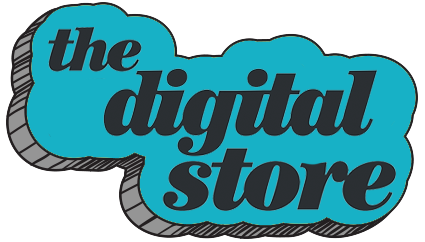Do consumers really want to know about your brand’s environmental creds?
Late in 2021, Europe’s leading marketers got together to have a surprisingly revealing discussion about, among other things, Barbie Dolls.
“We at Mattel are acutely aware of our responsibilities,” explained Amarilis Whitty, senior global PR manager, Mattel EMEA. “Barbie has one of the top-five brand channels on YouTube. She does a weekly vlog and she talks to kids in up to 20 different languages about issues, including sustainability. We’ve even worked with the UN to develop content themed around its sustainability goals.”

In partnership with Meta, the discussion was part of Campaign’s Brand Purpose Summit: UK editor, Masie McCabe chaired with Stephanie Lambert, head of industry, FMCG, Meta and Whitty patched in remotely. The topic under discussion was the circular economy and what it means to both brands and consumers.
“Do the vast majority of consumers want to know about our product lifecycles?” asked Stephanie Lambert. “No, not yet – the majority won’t think deeply about a brand’s supply chain or how it’s made. However, a significant proportion do care about the environmental footprint of what they buy - in fact, over half of shoppers say that they’ll consider the environmental impact as they think about what gifts they’re buying for Christmas.”
She said that there are a range of both push and pull factors driving sustainability and the adoption of circular processes higher up corporate agendas. Consumer demand is one – according to Meta data – there are more than half a million environmentally-friendly or upcycled items listed on Marketplace in the UK. But there are other factors such as the demands of government and investors.
“The opportunity is for brands to do what needs to be done now, before the space is regulated and they are forced to move to circular processes,” said Whitty. She talked about Mattel’s Playback scheme, launched this year in North America and Europe. The scheme is one of the toy industry’s first take-back-and-recycle projects. Parents put the toy in an envelope and ship it back to Mattel for recycling. “Though, we do encourage kids and parents to put toys in second-hand shops, whenever possible,” said Whitty.
“We at Mattel are acutely aware of our responsibilities,” explained Amarilis Whitty, senior global PR manager, Mattel EMEA. “Barbie has one of the top-five brand channels on YouTube. She does a weekly vlog and she talks to kids in up to 20 different languages about issues, including sustainability. We’ve even worked with the UN to develop content themed around its sustainability goals.”
In partnership with Meta, the discussion was part of Campaign’s Brand Purpose Summit: UK editor, Masie McCabe chaired with Stephanie Lambert, head of industry, FMCG, Meta and Whitty patched in remotely. The topic under discussion was the circular economy and what it means to both brands and consumers.
“Do the vast majority of consumers want to know about our product lifecycles?” asked Stephanie Lambert. “No, not yet – the majority won’t think deeply about a brand’s supply chain or how it’s made. However, a significant proportion do care about the environmental footprint of what they buy - in fact, over half of shoppers say that they’ll consider the environmental impact as they think about what gifts they’re buying for Christmas.”

“The opportunity is for brands to do what needs to be done now, before the space is regulated and they are forced to move to circular processes,” said Whitty. She talked about Mattel’s Playback scheme, launched this year in North America and Europe. The scheme is one of the toy industry’s first take-back-and-recycle projects. Parents put the toy in an envelope and ship it back to Mattel for recycling. “Though, we do encourage kids and parents to put toys in second-hand shops, whenever possible,” said Whitty.She said that there are a range of both push and pull factors driving sustainability and the adoption of circular processes higher up corporate agendas. Consumer demand is one – according to Meta data – there are more than half a million environmentally-friendly or upcycled items listed on Marketplace in the UK. But there are other factors such as the demands of government and investors.
Going round in circles
Whitty and Lambert stress the importance of transparency in a brand’s sustainability messaging. “Customers respect honesty and humility,” said Whitty. “They don’t expect you to make the whole journey to the circular economy in one go. But if you claim to be completely green and then you’re not, they will call you out on that.”
“None of this is easy,” Lambert said, “but our studies show that consumers will pay more for sustainable brands. But over three-quarters say they expect the brand to take ownership of the job of becoming more sustainable, so it’s important that brands don’t push too much responsibility onto the consumer.”
“And they expect the brand to take on the costs too,” said Whitty.” At least for now. That’s something brands need to factor in.” She cites the Barbie collection made of 90% recycled ocean-bound plastic. “We worked hard to keep that line of products at the same price as other Barbie Dolls.”
Advertising well
Speakers saw a clear role for sustainability messaging in a company’s marketing efforts: both in what it says but also in how it plans and executes its marketing and advertising campaigns. “We’re proud supporters of Ad Net Zero,” said Lambert. “It encourages advertisers and agencies to look at switching to zero-carbon production methods and to think about the sustainability of their media plans.
“The industry is coming together to reduce our overall footprint but also to think about what advertising can do for good. The advertising industry in the past has been used to drive really positive consumer behaviour changes. That’s what we need to do now.”

Whitty added: “From a business perspective, don’t think you have to create the whole grand scheme. You can start with very small baby steps. Every business, and every brand has an opportunity to be part of this process.
“And as a consumer,” said Lambert, “think about your buying power and the message you can send to brands. The more we do that, the more they will invest in this space.” The circular economy is essential for all of us in achieving our net-zero targets.
Source: Campaignlive.co.uk
